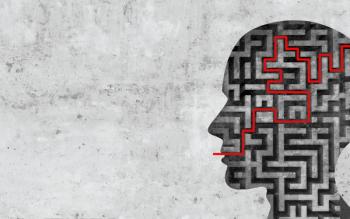
- Psychiatric Times Vol 28 No 7
- Volume 28
- Issue 7
Introduction: Serving Those Who Serve
This Special Report aims to address those symptoms and syndromes most commonly seen by clinicians who treat service members. The 5 articles of the Special Report cover the most challenging aspects of their care, and the authors hope to expand the reader’s understanding of the recent conflicts’ tragic consequences.
The terms we use to describe them are numerous and reflect the respect we have for their service: soldier, warrior, hero, American. The service these men and women provide to the country, regardless of one’s political leanings, is nothing short of selfless; our society reverently honors and appreciates their efforts with yellow ribbons and proudly displayed flags.
It is the other words, however, that engender our professional attention: parent, spouse, wounded, patient. Thankfully, most of our service members return home safely and without incident. For those not as fortunate, the injuries experienced are both visible and invisible, and rarely occur as solitary entities. For these service members, comorbidity is rampant and Occam’s razor simply does not apply. Their narratives inspire, shock, worry, and challenge us all.
Put quite succinctly by the press, the war has come home for these patients. Caught between a life they want and a life they cannot seem to forget, their behavioral health deteriorates. The etiology is sometimes sudden, as in those who are victims of a traumatic brain injury (TBI), and sometimes insidious. In each case, there is a wake of emotional recoil that affects families, peers, their military unit, and future employment.
Popular culture does not do much service to these plights. Inundated with images of John Rambo, Phineas Gage, or a homeless person on a street corner wearing an olive drab jacket, jaded descriptions of these classes of patients haze over their past heroic actions. Cynicism pervades as many decry the disability system as limiting progress and recovery. Despite these obstacles, we remarkably see their discipline and training manifest in the treatment arena. Instilled in every service member is a “Warrior Ethos,” which, at its core, includes the words, “I will never accept defeat. I will never quit.”
The will to live is probably our service members’ most striking attribute. In treating them, it is common to hear the phrase, “I should have died that day.” Yet, here they are, having ultimately survived dramatically harrowing experiences. They recount the dozens of obstacles that led them eventually to our consultation rooms. In the same way they have carried their peers, we are now tasked to carry them over the one obstacle that has forestalled their entire future.
This Special Report aims to address those
Not everyone can serve in our nation’s military. Arguably, few would want to; but the therapeutic foxhole we share as their behavioral health providers is as meaningful as those relationships forged in war. As such, we share in their Warrior Ethos: “I will never leave a fallen comrade.”
Articles in this issue
over 14 years ago
Addressing Postdeployment Needsover 14 years ago
Resources for Veteransover 14 years ago
Returning Veterans With Addictionsover 14 years ago
Suicide Among Service Membersover 14 years ago
The Long War Comes Homeover 14 years ago
Deep Water Testover 14 years ago
A Response by Daniel Carlatover 14 years ago
REMS Program for Opioid AnalgesicsNewsletter
Receive trusted psychiatric news, expert analysis, and clinical insights — subscribe today to support your practice and your patients.







